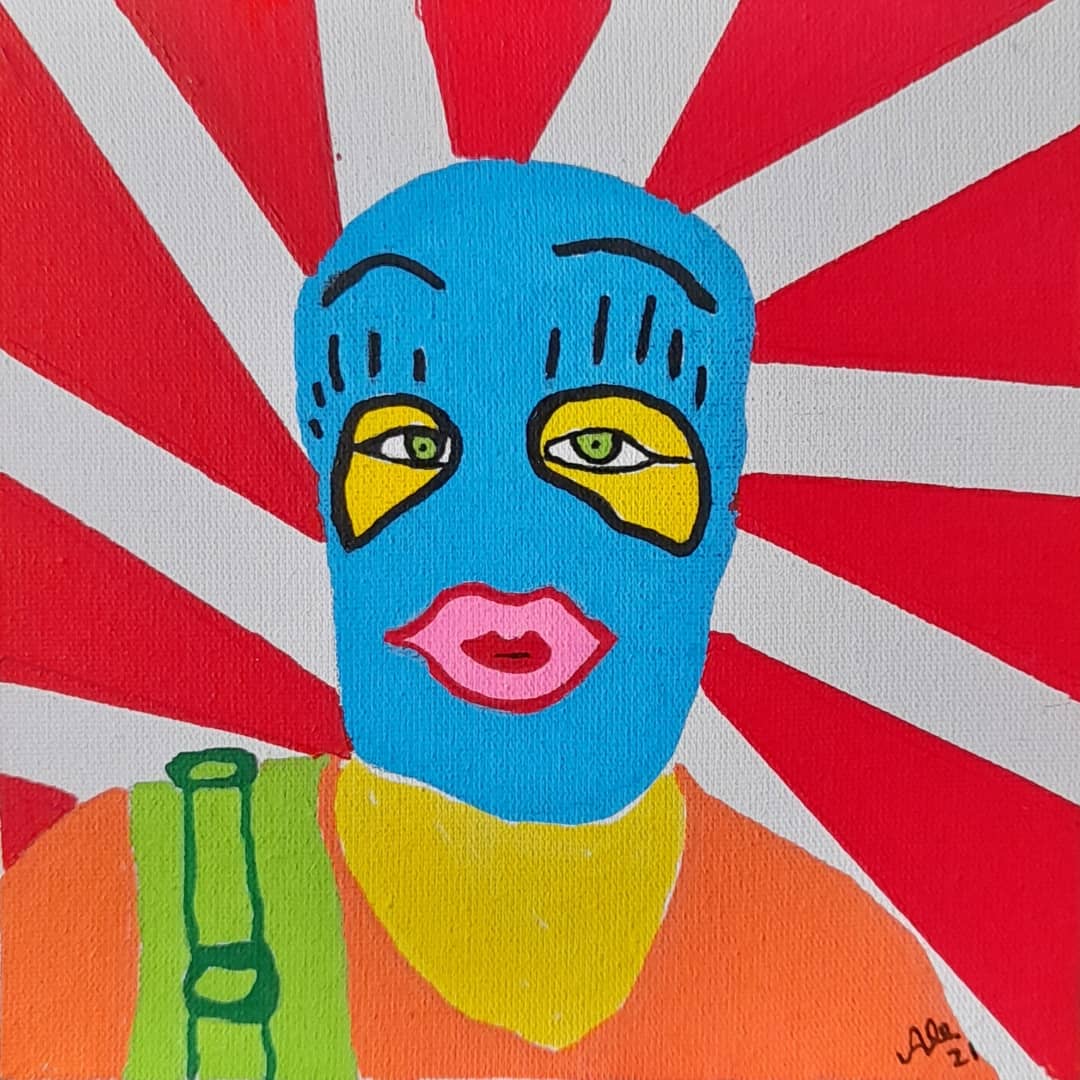
Dr. Simões Paiva has a Master's in Art History, Theory and Criticism and a Ph.D. in Latin American Studies, both from the University of São Paulo (USP). Currently, she is a professor at the Federal University of Southern Bahia (UFSB), Brazil, where she teaches interdisciplinary arts and critical race studies. She is a member of the Brazilian Association of Art Critics (ABCA) and the International Association of Art Critics (AICA). Her research focuses on relations of gender, race, ethnicity, and geopolitics in contemporary Latin American art, a theme that also crosses her practical work in painting and images made with reproducible techniques, such as stencils, stamps, and prints.
Brazil
Alessandra Simões Paiva
https://orcid.org/0000-0002-7169-2804
https://lattes.cnpq.br/1986753446241169
alesimoespaiva@gmail.com
Autora do livro A virada decolonial na arte brasileiraPrêmio Gonzaga Duque, Associação Brasileira de Críticos de Arte, 2023
https://www.editoramireveja.com/product-page/decolonial
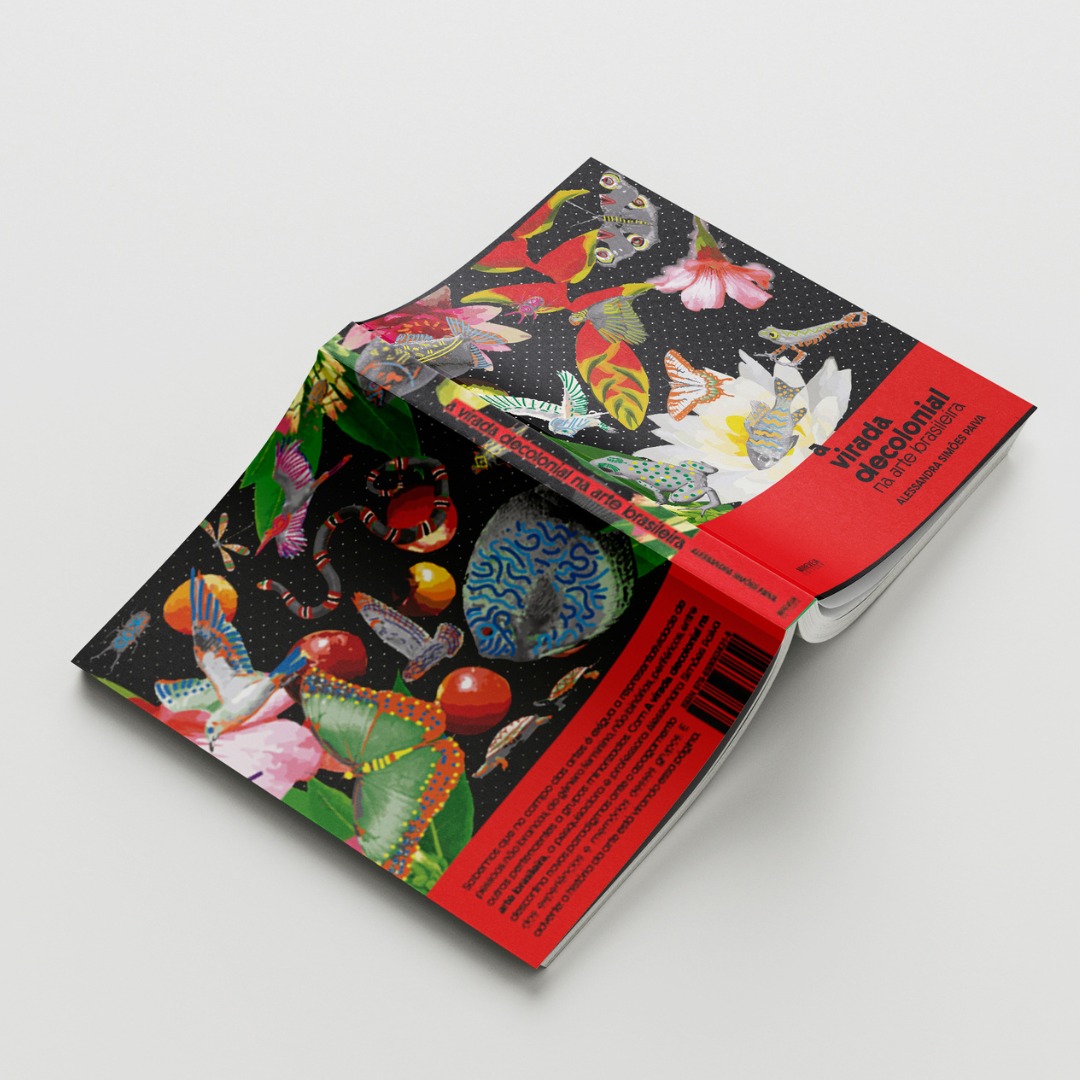
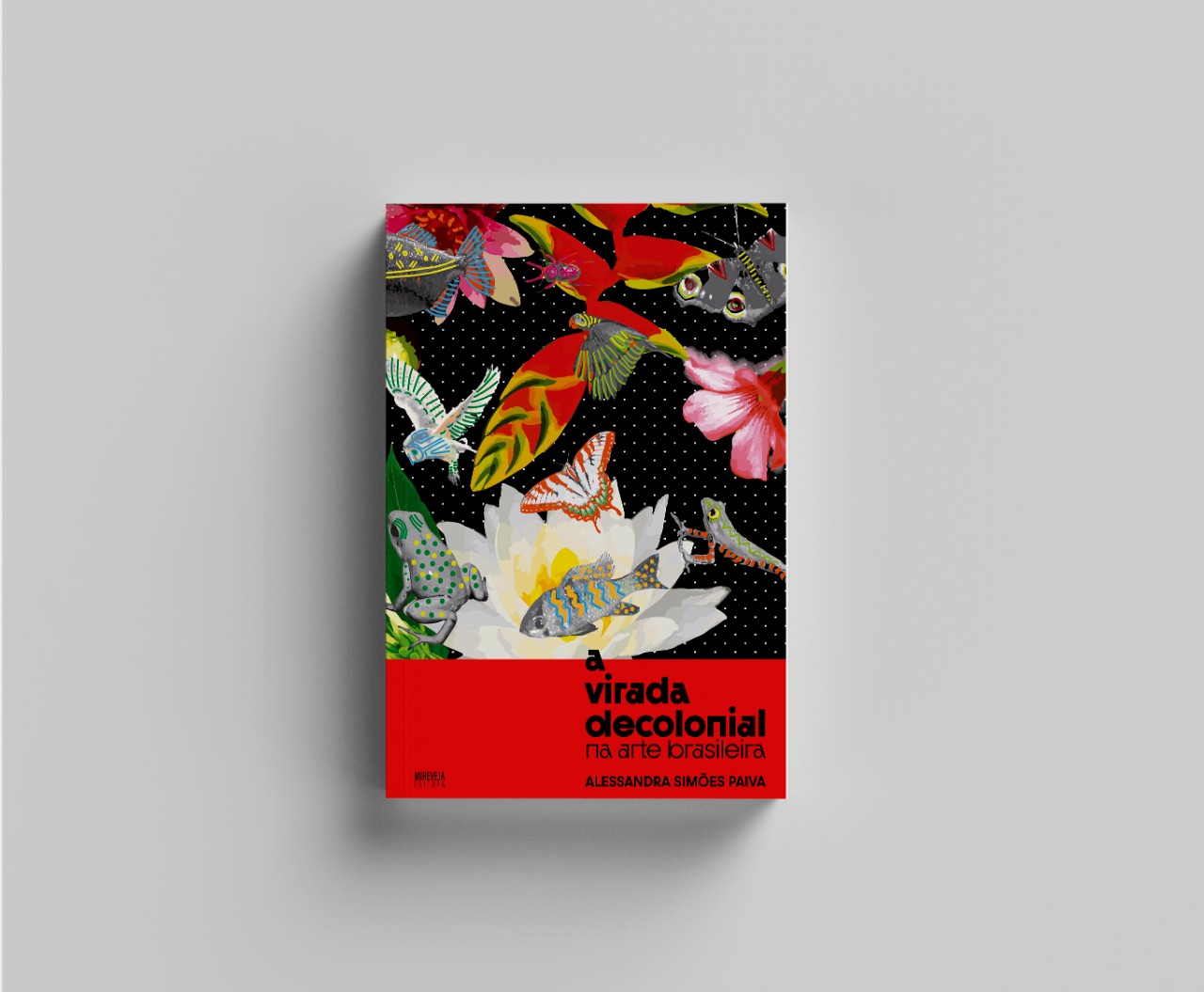
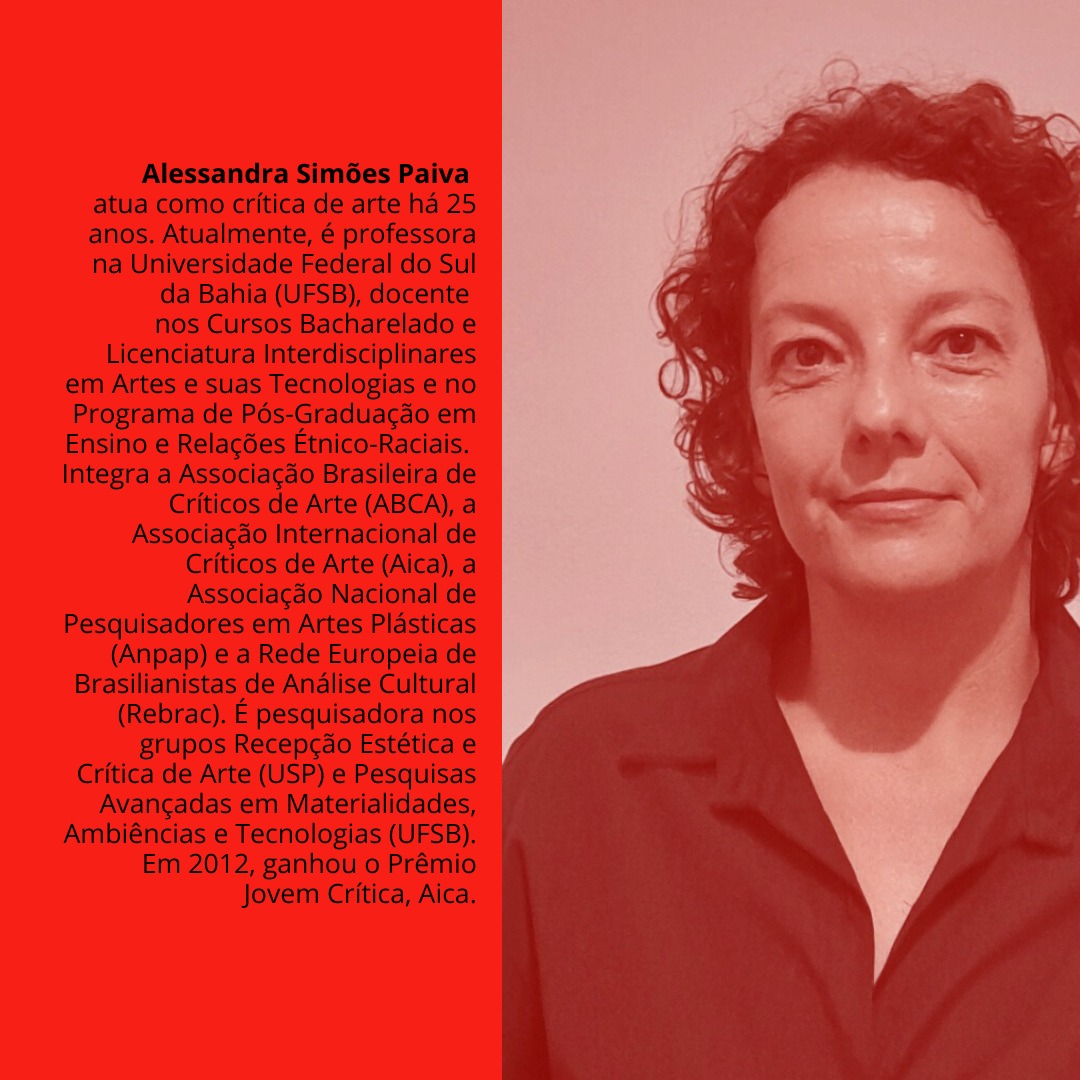
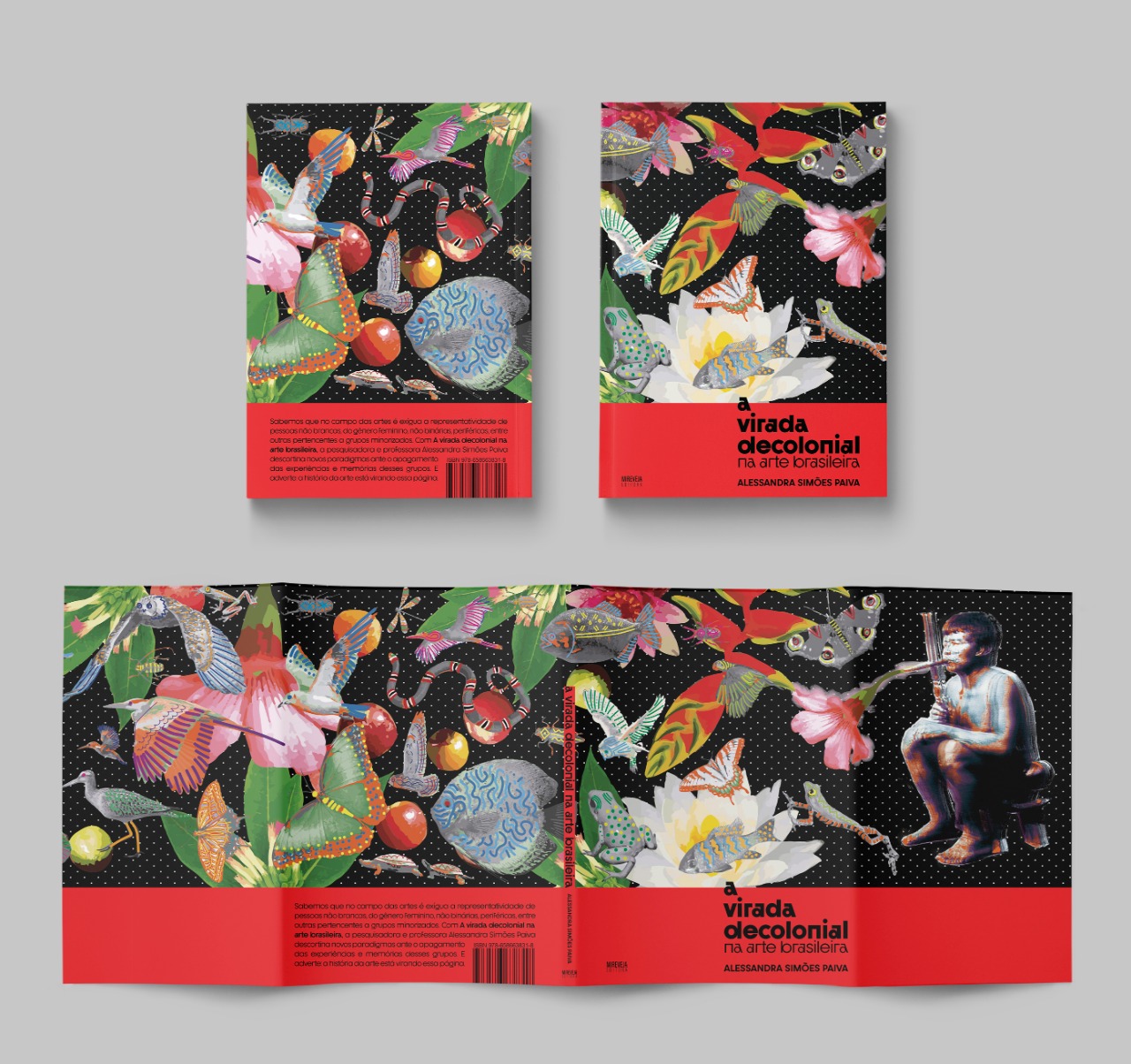
Tenho uma sólida formação em arte latino-americana contemporânea, com uma trajetória na qual teoria e prática estão intimamente entrelaçadas. Minha pesquisa concentra-se na relação entre a arte latino-americana contemporânea e a discussão “decolonial”, explorando a influência de conceitos culturais relacionados a raça, etnia, gênero, geopolítica, ecologia e classe social no sistema cultural atual. Especificamente, minha investigação enfatiza práticas estético-políticas contemporâneas em espaços de ativismo, protesto e movimentos sociais, tanto em áreas rurais quanto urbanas. Interesso-me por estéticas coletivas e colaborativas como força integradora e radicalizadora dos movimentos sociais contemporâneos.
Nos últimos anos, tenho atuado diretamente com comunidades indígenas e comunidades urbanas periféricas da região sul da Bahia, Brasil, por meio de projetos pedagógicos que envolvem estudantes universitários e se baseiam na utilização de práticas artísticas e tecnológicas.
Nesse sentido, colaborei com diversas organizações e instituições, incluindo:
-
O projeto “Inventar com a Diferença”, sediado na Universidade Federal Fluminense, que emprega uma metodologia inovadora relacionando cinema, mídia audiovisual e direitos humanos.
-
A ONG Thydêwá, dedicada ao trabalho com tecnologia e arte indígena, responsável por diversos projetos de grande relevância nessa área.
-
O projeto Útero Amotara Zabelê, localizado no território indígena Tupinambá e que constitui a primeira escola filosófica para povos originários das Américas.
Por meio dessas parcerias, pude incorporar meus próprios processos artísticos e práticas tecnológicas em diversos projetos pedagógicos que envolvem estudantes universitários. Essas experiências foram analisadas em artigos acadêmicos recentes de minha autoria.
Minha pesquisa é pioneira na investigação da “decolonialidade” no contexto artístico brasileiro, utilizando terminologia enraizada em estudos de grupos latino-americanos de língua espanhola. Ela se concentra em reunir práticas artísticas locais diversas em um contexto transcultural, enfatizando os vínculos de identificação entre redes periféricas e sua diferenciação em relação aos cânones artísticos ocidentais. Tenho particular interesse em como a arte contemporânea reconstrói identidades coletivas por meio de um complexo jogo de sistemas simbólicos, como religião, territorialidade e nacionalidade, em relação a discursos universais sobre direitos humanos, ecologia, feminismo e diversidade cultural.
No meu engajamento com organizações e projetos profissionais, comprometo-me a promover pluralidade crítica e inclusividade, como exemplifica meu trabalho recente na Associação Brasileira de Críticos de Arte (ABCA) e na Associação Internacional de Críticos de Arte (AICA). Por meio do projeto Pluralidade Crítica, busco transformar a ABCA em uma plataforma mais democrática e inclusiva para a produção crítica, respondendo à necessidade urgente de perspectivas decoloniais no sistema global de arte.
Como professora e artista, utilizo técnicas democráticas como gravuras, xilogravura, projeções de vídeo, estêncil e arte urbana para criar obras políticas consistentes sobre temas como feminismo e ecologia. Na condição de professora universitária da Universidade Federal do Sul da Bahia (UFSB), leciono no curso de graduação Licenciatura Interdisciplinar em Artes e suas Tecnologias, que possui um currículo “decolonial” integrando poéticas indígenas, afrodiaspóricas e periféricas latino-americanas às epistemologias eurocêntricas. Priorizo métodos altamente dialógicos com meus estudantes, incluindo imersões comunitárias e aprendizagem baseada em projetos. Além disso, leciono no curso de mestrado Ensino e Relações Étnico-Raciais, no qual exploro a relação entre cultura e questões “decoloniais” na educação em artes.
Localizada em uma vasta área de Mata Atlântica preservada, em territórios fortemente marcados por grupos indígenas, afrodescendentes e agroecológicos, a UFSB é uma universidade altamente inovadora que atua em estreita colaboração com comunidades locais, adotando pedagogias inclusivas e currículos decoloniais.
In recent years, I have been directly engaged with indigenous communities and peripheral urban communities in the southern region of Bahia, Brazil, through pedagogical projects that involve university students based on the utilisation of artistic and technological practices.
In this regard, I have collaborated with several organisations and institutions, including:
- The "Inventar com a Diferença" (Creating with Difference) project, which is based at the Universidade Federal Fluminense and employs an innovative methodology that relates cinema, audio-visual media, and human rights.
- The Thydêwá NGO, which is dedicated to working with indigenous technology and art and has undertaken several noteworthy projects in this area.
- The Útero Amotara Zabelê project, which is located in the Tupinambá indigenous territory and is the first philosophical school for Native American peoples.
Through my partnerships with these organisations, I have been able to incorporate my own artistic processes and technological practices into various pedagogical projects that involve university students. These experiences are analysed in some recent academic articles I have authored.
My research is a pioneer in investigating "decoloniality" in the Brazilian artistic context, using terminology rooted in research by Spanish-speaking Latin American groups. It focuses on bringing together diverse local art practices in a transcultural context, emphasising the links of identification between peripheral networks and their differentiation from Western artistic canons. I am particularly interested in how contemporary art reconstructs collective identities through a complex interplay of symbolic systems, such as religion, territoriality, and nationality, in relation to universal discourses about human rights, ecology, feminism, and cultural diversity.
In my engagement with professional organisations and projects, I am committed to promoting critical plurality and inclusivity, as exemplified by my recent work with the Brazilian Association of Art Critics (ABCA) and the International Association of Art Critics (AICA). Through the Critical Plurality project, I seek to transform the ABCA into a more democratic and inclusive platform for critical production in response to the urgent need for decolonial perspectives in the global art system.
As a professor and artist, I use democratic techniques like prints, engraving, video projections, stencils, and urban art to create solid political works on themes such as feminism and ecology. As a university professor at the Federal University of Southern Bahia (UFSB), I teach in a graduate course called Interdisciplinary Licentiate in Arts and its Technologies, which has a "decolonial" curriculum that integrates Indigenous, Afro-diasporic and peripheral Latin American poetics with Eurocentric epistemology. I prioritise highly dialogic methods with my students, including community immersion and project-based learning. Additionally, I teach in the Master's course Teaching and Ethnic-Racial Relations, where I explore the relationship between culture and "decolonial" issues in art education.
Located in a vast expanse of preserved Atlantic Forest, in territories strongly marked by indigenous, Afro-descendants, and agro-ecological groups, UFSB is a highly innovative university that works closely with local communities, employing inclusive pedagogies and decolonial curricula.

The Three Decolonial Graces (acrylic on canvas, 2022)
Sou professora, artista, crítica e pesquisadora de cultura, arte e educação com forte formação em arte contemporânea latino-americana e com uma trajetória em que teoria e prática estão intimamente interligadas. Minha pesquisa está focada na relação entre a arte contemporânea latino-americana e a discussão "decolonial", em particular, a influência de conceitos culturais relacionados a raça, etnia, gênero, geopolítica e classe social no sistema cultural atual. Minha pesquisa tem ênfase nas práticas estético-políticas contemporâneas, particularmente nos espaços de ativismo, protesto e movimentos sociais.
Minha pesquisa também se interessa pela estética coletiva e colaborativa como força integradora e radicalizadora dos movimentos sociais contemporâneos, nos espaços rurais e urbanos. Minha pesquisa é pioneira na investigação do "descolonialismo", baseado em terminologia enraizada em pesquisas de grupos latino-americanos de língua espanhola, e sua relação com o contexto artístico brasileiro. Atualmente, venho pesquisando sobre a formação de uma articulação transcultural de sistemas artísticos locais a partir da ideia de que a diferença cultural se baseia menos em fronteiras territoriais, mas nos vínculos de identificação entre redes periféricas e sua diferenciação em relação aos cânones artísticos ocidentais (histórico e contemporâneo). Minha pesquisa também está focada em identidades coletivas que estão sendo reconstruídas pela arte contemporânea de forma inédita por meio de uma complexa articulação de sistemas simbólicos como religião, territorialidade, raça, classe, etnia, gênero e nacionalidade, em articulação com discursos universais sobre direitos humanos , direito internacional, ecologia, feminismo, direitos culturais e outros meios de respeitar as diferenças dentro da igualdade.
Além de buscar “contra-epistemologias”, minha pesquisa está profundamente articulada com minha prática, como pode ser visto em meu mais recente projeto junto à Associação Brasileira de Críticos de Arte (ABCA), seção brasileira da Associação Internacional de Críticos de Arte (AICA). Intitulado Pluralidade Crítica, este projeto está em andamento por meio de uma comissão que busca ações para transformar a ABCA em um lugar mais democrático e inclusivo de produção crítica diante da urgência do debate decolonial no sistema da arte mundial. Minha pesquisa também se relaciona expressivamente com minhas práticas como artista e professora universitária.
Como professora e artista, construí uma poética que faz uso de técnicas democráticas de reprodução da imagem (como gravuras, gravuras, projeções de vídeo, stencil e arte urbana) e temas fortemente políticos, como o feminismo e as questões ecológicas. Atualmente trabalho em uma universidade (Universidade Federal do Sul da Bahia – UFSB) que possui uma estrutura pedagógica e filosófica extremamente inclusiva e libertária, muito relevante para o território em que está inserida, o sul da Bahia (estado do nordeste Brasil), marcada pela presença expressiva de comunidades afrodiaspóricas, indígenas e agroecológicas, entre outras.
O curso de pós-graduação em que leciono, a Licenciatura Interdisciplinar em Artes e suas Tecnologias, tem um currículo declaradamente “descolonizador”, no qual as poéticas originariamente latino-americanas (indígenas, afrodiaspóricas e periféricas) têm fortes influências, em diálogo com a cultura eurocêntrica e epistemologias norte-americanas. Minha prática docente na graduação tem sido pautada por métodos altamente dialógicos com o corpo discente, a partir da prática de projetos e imersões em comunidades e questões territoriais. Leciono também no curso de mestrado Ensino e Relações Étnico-Raciais (UFSB), onde posso aprofundar a articulação entre arte e “descolonialismo”, e sua relação com o campo da Educação.

 Drawings
Drawings

Drawings
